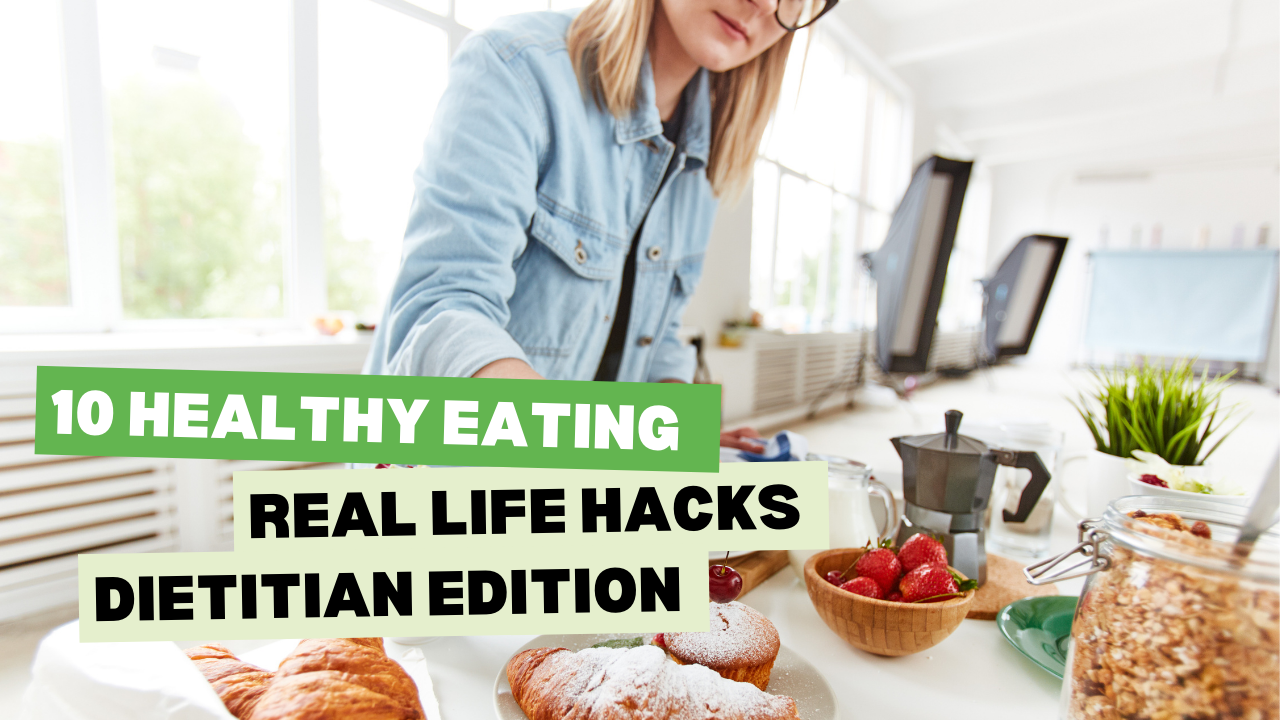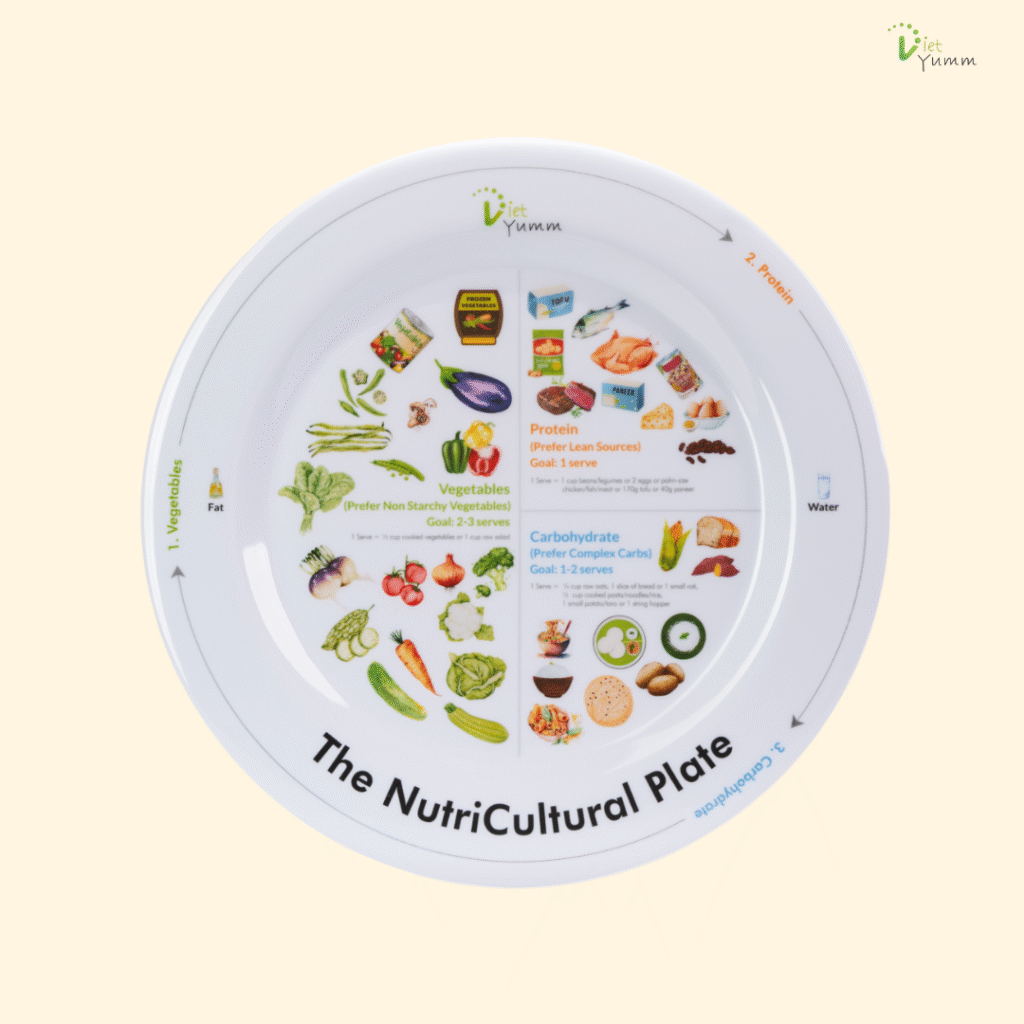

Modern life is hectic; between meetings, family responsibilities, and endless to-do lists, healthy eating can feel like another job. But here’s the good news: you don’t need hours in the kitchen to nourish yourself well. Small, science-backed strategies can make a significant difference in your energy, focus, and overall well-being.
Here are 10 research-backed hacks to eat well, even when life is busy.
1. Start with a Protein-Packed Breakfast
Skipping breakfast may seem like a time-saver, but it often backfires. People who eat a high-protein breakfast report better appetite control and fewer sugar cravings later in the day. Protein slows digestion, stabilises blood sugar, and helps you stay full for longer.
Practical hacks:
2. Master the “2-in-1 Meal Prep”
Research shows that people who prepare meals ahead of time eat more vegetables, better quality diets, and rely less on fast food. But you don’t need to spend Sunday cooking for hours.
Practical hacks:
This approach saves effort and money while reducing the “what’s for lunch?” stress.
3. Stock Your “Emergency Drawer” at Work
Our work environment shapes our food choices. Studies show that easy access to healthier snacks leads to better dietary patterns. If the only options are vending machines, biscuits, or pastries, you’ll likely grab them when hunger strikes.
Practical hacks:
This small shift protects you from the 3pm slump.
4. Plate Your Takeaway Smartly
Takeaway is a reality for most busy professionals and parents. The problem? Portion sizes from restaurants are often far larger than what our bodies need .
Practical hacks:
This keeps takeaway convenient without derailing your nutrition goals.
5. Use the “15-Minute Rule” for Dinner
Cooking doesn’t have to be elaborate to be healthy. Research shows that people who cook at home even simple meals have healthier diets and lower risks of chronic diseases.
Practical hacks:
Dinner doesn’t need to be perfect—it just needs to fuel you.
6. Hydrate Before Caffeine
Caffeine is a lifesaver for many busy people, but starting the day with water has benefits. Mild dehydration is linked with fatigue, poor focus, and headaches, the very things you rely on coffee to fix.
Practical hacks:
Hydrating first can help you feel more alert naturally.
7. Outsmart the Afternoon Slump with Fibre + Protein
That 3pm slump? Often linked to sugary snacks causing a rapid blood sugar spike followed by a crash. Choosing fibre and protein balances energy release.
Practical hacks:
Balanced snacks = steady focus for the rest of the day.
8. Rethink “Weekend Binge Prep”
Spending 4 hours batch cooking on Sunday can feel exhausting and hard to maintain. Studies suggest that flexible meal prep (prepping ingredients rather than full meals) improves long-term success. This is my personal favourite!!
Practical hacks:
This keeps things practical, varied, and less overwhelming.
9. Build a “Nourish Plate” at Lunch

The NutriCultural Plate model (½ veggies, ¼ lean protein, ¼ wholegrain carbs) helps with improvement in blood sugar control and reduced chronic disease risk.
Practical hacks:
This method works anywhere—home, work, or restaurant.
Buy your set of the NutriCultural Plate here!
10. Stop Multitasking at Meals
It’s tempting to eat lunch while checking emails, but distracted eating often leads to overeating . Mindful eating helps regulate appetite and digestion.
Practical hacks:
Even small breaks can improve satiety and satisfaction.
Final Thoughts
Healthy eating on a busy schedule isn’t about perfection. It’s about building a few smart habits into your day. Habits that save time, boost energy, and protect your long-term health.
At Diet Yumm, we help busy professionals and families turn these hacks into lasting habits.
👉 Want personalised strategies that fit your life?
📩 Book a consult with us – Book Now.
📲 Follow us on Instagram @dietyumm for more science-backed hacks you can use daily.
Product Recommendations:
Disclaimer: These recommendations are not sponsored.
References

Purva Gulyani – an Accredited Practising Dietitian and lifelong member of the Indian Dietitian Association. Currently pursuing PhD at Latrobe University. Purva brings over 16+ years of clinical dietitian experience to the table.




Commence your transformative journey to wellbeing today, taking the initial stride towards a healthier, happier you. Embrace constructive alterations that lead to a brighter and more vibrant future.
